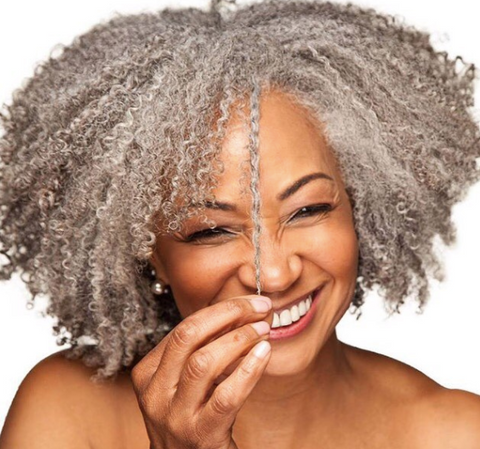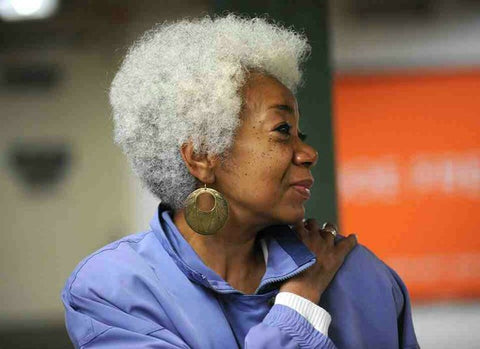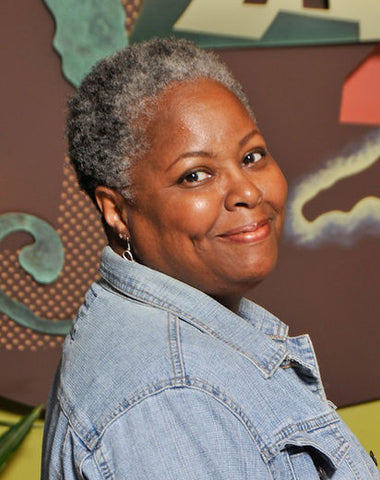
Today at NaturAll, we’re tackling GRAY HAIR: a concept that means maturity, dignity and power for some… and makes other people shudder. If you are starting to see gray hairs, don’t have any at all, or if you already rock a gray crown, you probably still have some questions about gray hair. So here's a guide to learn a little more about it...
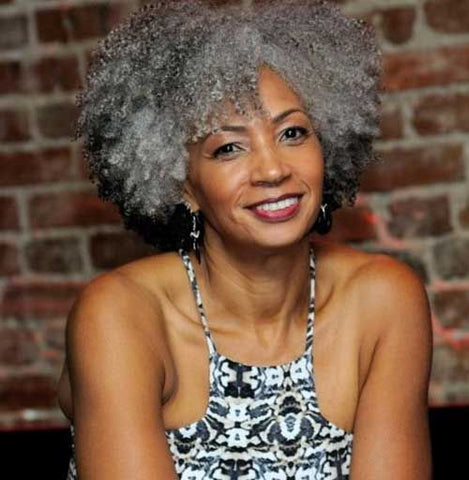
The gray hair journey starts with melanocytes, cells that live around the hair follicle and produce melanin. Melanin, of course, is the natural pigment in skin and hair. The melanin produced by melanocytes disperses into the cortex of developing hair strands, and the structure and concentration of that melanin determines the color and shade of your hair.
With age and other causes, your melanocytes slow down, stop producing melanin, and eventually die. This happens in a few follicles first, and eventually throughout your hair, resulting in hair without any pigment. This is the process of going gray. While graying is affected by a range of factors including genetics, lifestyle, stress, and even ethnicity, the number one factor in graying is age.
But it’s not just the color and pigment of your hair that alters when you stop producing melanin- the structure and properties of your hair will also change. When melanocytes die, this can cause a slight change in the shape of the hair follicle. Since your curl pattern is determined by the shape of the follicle, you may notice gray hairs will not follow the curl pattern you’re used to- they may be more or less curly than before.
Additionally, gray hair strands can develop a medulla: a hollow core that makes those strands more wiry and unruly. The absence of melanin in the cortex can also lead to reduced elasticity and strength, and a tighter cuticle layer, making gray strands more difficult to penetrate with color treatments. Simultaneously though, this medulla can make your gray hairs more porous. If you're used to low porosity hair, you may be in for a change. (Not sure what porosity is? Learn more!)
Finally, melanin is a protectant from environmental damage. With the loss of melanin, your hair will become more vulnerable to UV rays, and you’ll be more likely to experience broken hair, split ends, frizz, tangling, cuticle damage, and even yellowing.
Many women opt to color their gray hair, either to avoid the effects described above, or simply because they prefer the look of colored hair. But gray hair can be tricky, time consuming, and expensive to maintain colored and many women choose to embrace their grays. The choice is up to you! If you want to color your hair, check out this guide to dyeing your natural hair. But if you do choose to keep your gray hair, here are some tips for keeping it healthy!
1. Be more careful with your hair than you’re used to.
Gray hairs have reduced strength and elasticity, making them very breakable. Be careful of over-styling or using too much heat, both of which will be more damaging than before.
If your hair feels especially weak or brittle, try a protein treatment every 4 to 8 weeks. Protein treatments can help strengthen your hair and improve elasticity.
2. Moisture is more important than ever before!
Grey hair tends to be more dry, so be diligent with conditioners and moisturizers. Always use oils to seal in moisture, use a daily leave-in conditioner, and if you’re still struggling with dryness, deep condition more often- even up to once a week.
We recommend NaturAll's Hydrating Avocado Kiwi Line which includes a conditioner, leave-in conditioner, moisturizer, deep conditioner, and oil. Avocado is known for its moisturizing properties, and we've formulated these products specifically to hydrate and moisturize dry hair.
3. Avoid conditioners or hair products with mineral oil.
4. Avoid harsh shampoos and other chemicals that can dry out your hair.
5. Take extra precautions to protect your hair from UV radiation.
6. Gray hair can look dull or less vibrant than it used to. Vitamin E Oil can help with shine!
7. A healthy body is the key to healthy hair.
8. Figuring out your gray hair can be challenging!
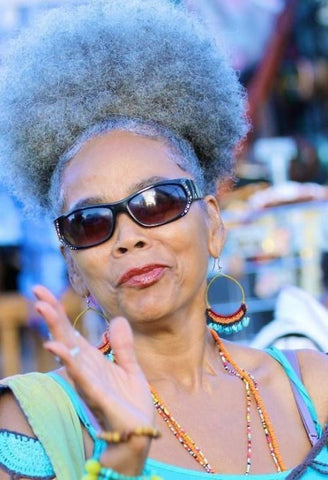
What are tricks you’ve learned to taking care of your gray hair, or questions you have about gray hair? Let us know in the comment section!








